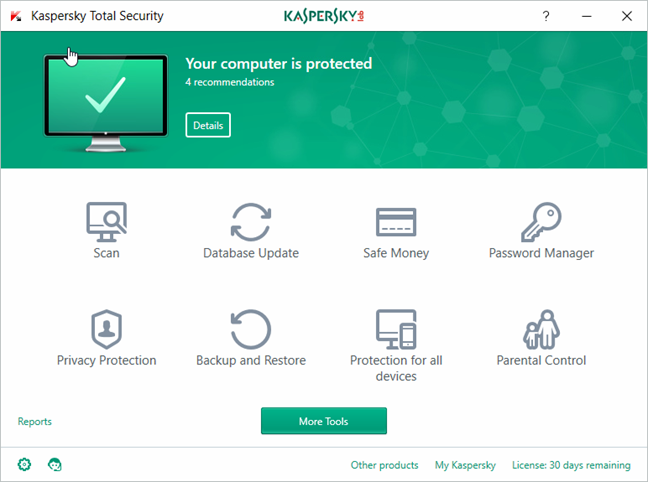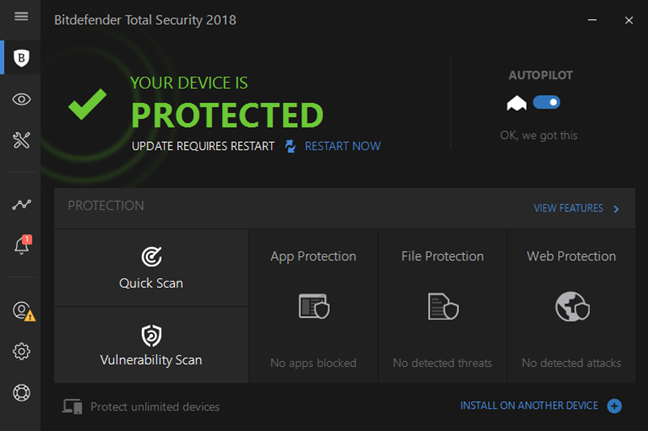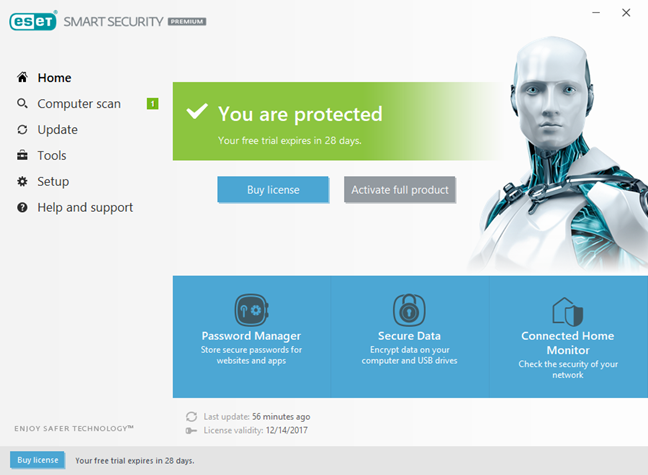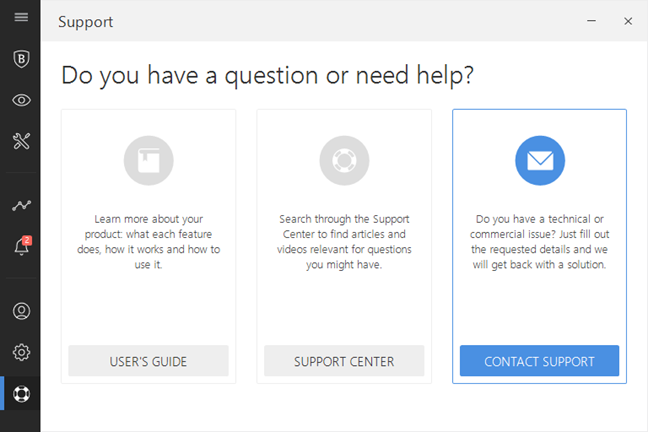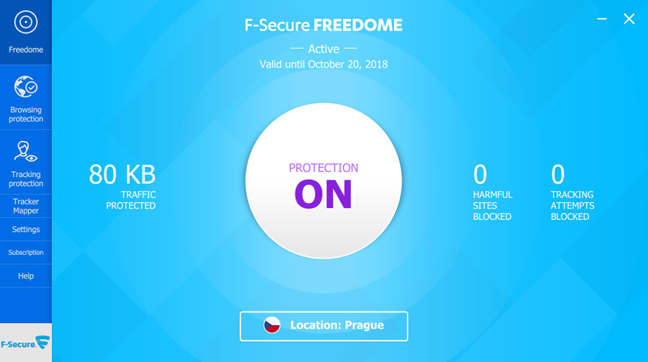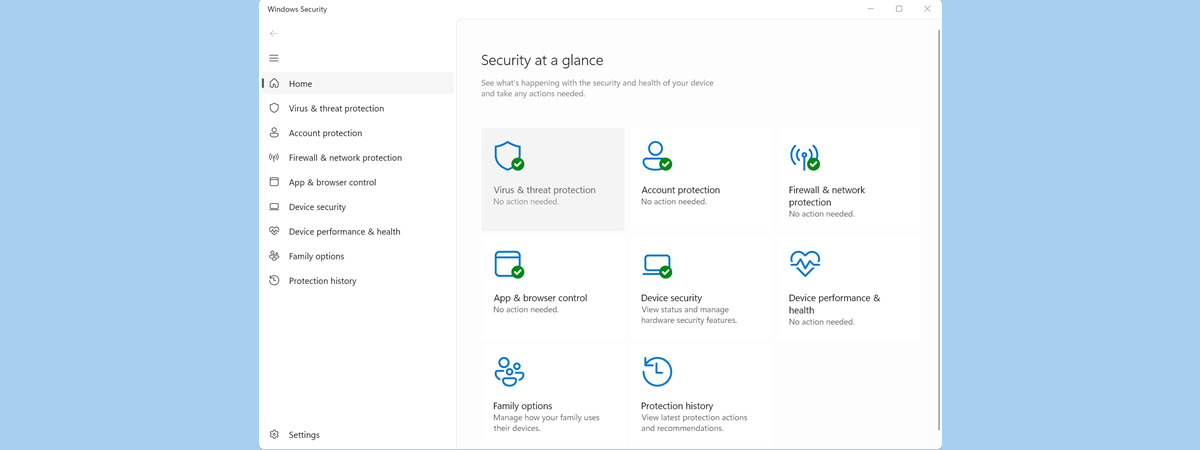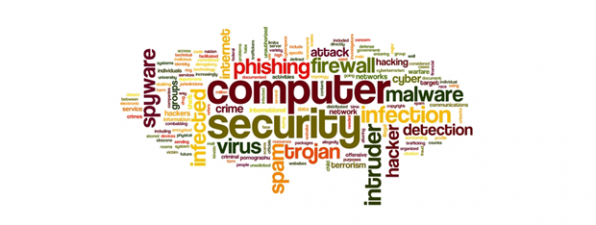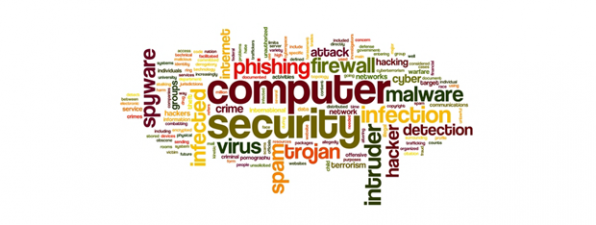
Are you searching for the best antivirus or the best security solution for your Windows computer or device? There are so many options on the market that you may not know which to choose. You know that you need an antivirus, but you do not know which criteria it should meet. All security companies market their products as being the best, having the greatest antivirus or firewall, being complete products and so on and so forth. However, whom should you trust? How should you choose your antivirus? In this guide, we share the criteria that you should use to select the best security product for you:
1. Look for all-inclusive protection
In the nineties, having a good security product for your computer meant that it was enough to have a good antivirus. Nowadays, a good security product is not just about the antivirus protection anymore. It is also about firewall protection, protection against cybercrime when browsing the internet, protection against ransomware, VPN protection against third-party monitoring and censorship, and so on.
A good security product must include several security layers that protect you against modern cyber threats. A good antivirus is good against traditional types of malware, but that does not mean that your computer cannot get infected by ransomware, which can be even more damaging than a conventional virus. That is why we believe that, when you look for your next security solution, you should check whether it offers all-inclusive protection. This means protection against the following types of threats:
- Viruses - programs with malicious intents which are characterized by the fact that they can multiply themselves and thus infect other computers or devices. Viruses are usually tied to an executable file which, when you unknowingly run it, also acts as the trigger for the virus.
- Trojans (Horses) - are malicious software that can masquerade as common software and because of that, can trick you into downloading and running them on your computer. When you do that, trojans usually open the gate to other forms of malware on your computer.
- Worms - are malicious programs that take advantage of the security holes and vulnerabilities in your operating system or other software (like your web browser for instance) and use them to infect your computer. Unlike regular viruses, worms can multiply and spread by themselves, without you having to run an infected file.
- Spyware - software programs that are designed to spy and gather intelligence about you. Spyware tries to hide from you, from the operating system and your security solution and, after it collects information about you, it tries to send it to hacker-controlled servers.
- Rootkits - a particular type of malware designed to give hackers remote access and control of a device, without being detected by the victims or the security software installed on the infected devices. When a hacker gains access to a rootkit infected device, he or she can use it to remotely access, copy and execute the files on it, change operating system settings, install additional software (usually other types of malware) and so on. By definition, rootkits are a stealthy kind of malware, so they are somewhat harder to detect and remove from an infected machine.
- Ransomware - malicious programs that, once they infect your computer, they take control and encrypt your files, like your pictures, work documents, and videos. Once that happens, ransomware programs try to make you pay considerable amounts of money to their creators, so that you can get your files back.
- Adware - software programs that display advertisements on your screen, in your web browsers or other places on your computer. It may not be malware by definition, but adware almost always hurts your computer's performance and your user experience, and can also help infect your computer with malware.
- Network attacks - when hackers try to take control of your devices remotely, they can do that through a "break" approach. That is when you need a firewall to stop network attacks. A good firewall must be able to deflect attacks from the outside but also tell you about suspicious traffic that is initiated from your computer to the outside world.
- Web threats - your web browser should be the first in the line of defense against malware. That is why a good security solution has to include a web protection module that can stop you from visiting websites with malicious content. It is better to deal with malware in your browser than to have to do that when it reaches your computer.
2. Choose reliable protection
One of the most important criteria for choosing the best antivirus solution is its reliability. A reliable security product should be able to:
- Protect without causing conflicts with other programs installed on your computer. For instance, when you install it on your computer, a good security suite should check whether similar security programs are already found on your system. If that is the case, the security suite should first ask you to remove the conflicting software, before installing itself.
- Protect its processes from unwanted termination. Powerful malware is designed to take advantage of the weak spots of an antivirus. Some malware might try to kill the antivirus solution that runs on your system and take control of the system. A reliable security solution should always protect its processes from unwanted termination.
- Provide up to date protection. An antivirus solution that uses old and outdated malware definitions is a weak product. Threats evolve continually; they never stop, so antiviruses must do that too. A good antivirus is a product that regularly updates itself, several times a day.
- Automate security scans. We believe that a reliable security solution should offer a means to automate antimalware scans. By that, we mean that a security suite must let you schedule antivirus scans. It is even better if a security product comes out of the box with regularly scheduled scans already activated. It is even better still if it runs antivirus scans when your computer is idle and is not doing anything anyway.
3. Watch out for the performance impact
Security products are, by nature, programs that require quite a bit of computing resources to do their job. They use more computing power than your average audio player, for example. However, all security vendors work to minimize their products' impact on your computer's performance. If your computer is not the most powerful on the market, you should take into consideration the performance aspect. Usually, a good security product should:
- Have a small impact on the boot timings of your computer. Your Windows should start almost as fast as it did before you installed your security product.
- Have a small impact on your computer's performance. An effective security solution is no good if it bogs down your computer. It should know how to use your computer's resources in a way that does not negatively affect your computing experience regarding performance and responsiveness.
- Be fast in scanning your computer for malware. Good antiviruses tend to be faster than others when it comes to scanning your computer for malware threats.
4. Prefer usability
A good security product must be easy to use both by knowledgeable users as well as casual users with little to no knowledge about security. That means it needs to:
- Be easy to navigate. It should provide you with an intuitive way of navigating through its various windows, tabs, menus, and settings.
- Be easy to use on devices with touchscreens. The era of the plain old monitor is dead. These days, the number of PCs with a touchscreen is increasing at a fast rate. Thus, more and more people use touch to control how the software works. A good security product should have large buttons, tiles, switches of all kinds, check marks and so on. In other words, it must have control elements that are easy to touch with your fingers too, not only with the mouse's cursor.
- Be easy to understand. No matter how easy it is to navigate through a user interface, it is no good if you do not understand what every item and setting means. The configuration options that are offered should be easy to understand by all users.
- Provide you with easy to find documentation. Just like any good product, good security products must provide an easy way to access their documentation. If Help documentation is available, but you cannot find it, what is the point?
- Give you complete control of how it works. Many people look for security products that do not require any particular configuration. However, there are also people who want to set every detail of how a security product works. If that is the case for you, a good security product must provide you with complete control.
These are all relative criteria because some users are more advanced and have a more technical background, while others are not. Regardless of your level of technical knowledge, it is essential that a security product is easy to use for you.
If you are a beginner and you do not have technical inclinations, look for an "install & forget" type of security product. If you are more of a professional user, you might want to look for a security product that can be configured in detail, one that offers many advanced settings.
5. Be ready to ask for support
Nothing in this world is perfect, so being able to call for help when something does not work as it should, is important. That is why the support options you get are a factor to consider before deciding to buy a security product.
An IT security company that creates excellent security programs usually tends to offer a broad array of support options and, if you have problems with their product, you should be able to:
- Write an email to them, in which you describe your issues with their antivirus product
- Have a live chat session with one of their support engineers
- Call their support service for help
None of the support options should cost you additional money, other from what you already paid when you bought their product.
6. Make good use of the bundled tools
Many "complete" security products bundle additional tools besides the core security modules. They may include password wallets, safely encrypted storage space in the cloud, parental control tools and so on. These additional tools should not hold the first place in your mind when you start looking for your next great security solution, but they can be that little push you need to make the right choice between two similar security products. For instance, if you are a traveler and you usually take your Windows computer or device with you, you should get a security product that includes a VPN service plan, or subscribe to a VPN service separately. It is the only way in which you can be safe when you connect to untrustworthy public wireless networks like those found in airports, coffee shops, conference centers and so on.
If you are a parent, and you have to choose between two similar security suites, but only one of them offers a parental control module, you should probably choose the one with the parental controls.
When choosing to buy a security product, you should check whether the additional tools it bundles are:
- Security-oriented. If a security product gives you for free additional tools that are not security oriented, we believe that they are not worth buying. Those tools are just a means to a marketing end.
- Useful. The additional tools you get when buying a security product should be helpful to you. They should not only be clones of tools that are already found in Windows.
- Do not harm your security or your privacy. Some vendors choose to bundle additional tools that are not helpful in increasing your security or privacy. On the contrary, they are harming it. If a security solution includes shady toolbars, web browsers, browser add-ons or any other tools that lower your security or privacy, you should stay away from that product.
- Do not involve additional costs. If you need to pay more money in addition to what you already paid for the security suite, they are not worth it.
7. Consider reputation
This may sound a bit conservative like we are some old-school team of editors who want to favor the big names of the IT security market. That is not true, and we assure you that our intentions are honest: reputation matters! Buying and using a security product from a company with a good reputation is usually a safer bet than jumping all in with a security product from an unknown firm. Good security solutions tend to remain good as time passes. At the same time, many malware programs disguise themselves as so-called security solutions. When choosing to use an unknown antivirus, for instance, you might end up installing a virus on your computer, which is what you wanted to protect yourself from.
8. Be cost-aware
OK, you probably think that all the criteria we have talked about are fine and dandy, but none of them is as important as the cost of that security solution. Most people tend to choose less expensive products, and while this is a right general approach, it is not always the best. In the case of security products, that means that you should look for the lowest priced product that fits your needs and offers the protection you need. That product might not be the least expensive on the market. On the other hand, though, imagine how much it might cost you if you buy a bargain security product that cannot protect your files from ransomware?
9. Read our "Security for everyone" series, because it is meant to help you choose the right antivirus product for you
We believe that the above criteria are the most important when it comes to choosing the best antivirus/security solution for you. We have been writing reviews for security suites in our "Security for Everyone" series for many years and, ever since we began this series, we have always strived to answer this question: which is the best security product for our readers?
Some security suites are better than others regarding anti-malware protection; some are easier to use, some offer many advanced settings, and so on and so forth. In each of our reviews, we cover all the above criteria, and then we rate each security product.
Which criteria do you use for choosing your antivirus?
Each security product has its ups and downs, and it is difficult to name one as the best for everyone. A security product can be the right one for you as a beginner, while another might be the right one for you as an advanced technical user. Hopefully, the above criteria, together with our security reviews will help you identify the best antivirus product for you. Before closing this article, share with us in a comment the criteria that you use when purchasing an antivirus. Comment below and let's discuss.


 19.03.2018
19.03.2018 